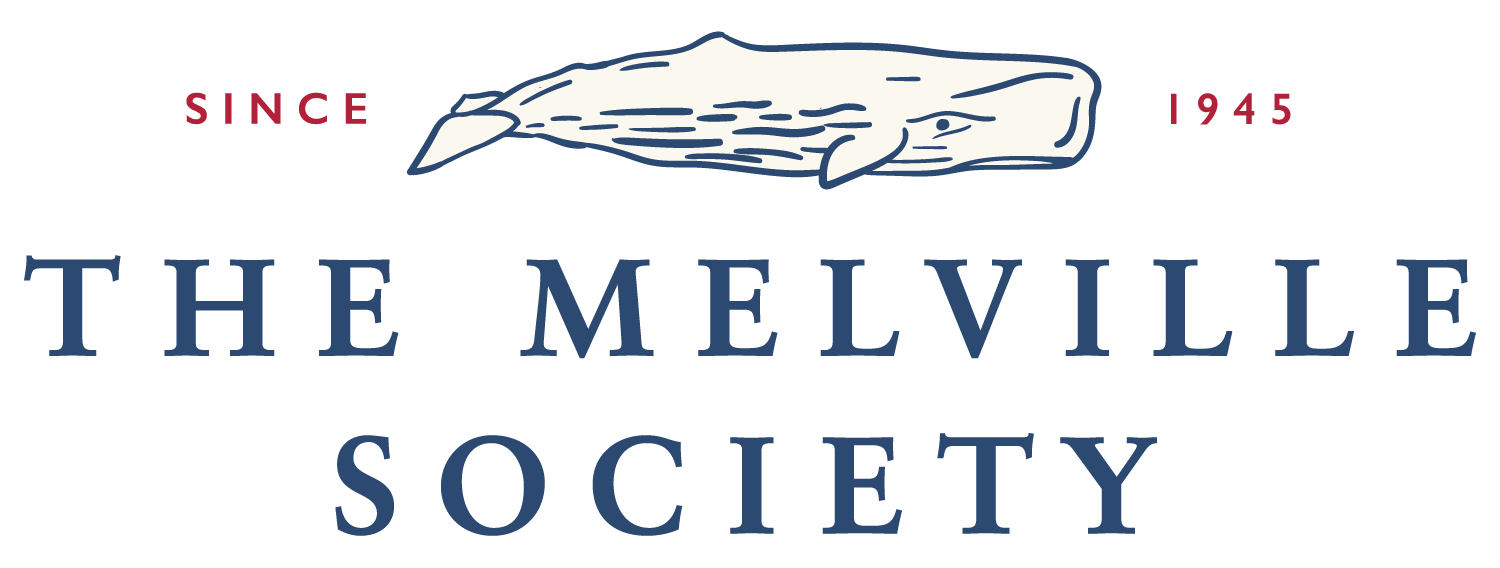Call For Papers: 13th International Melville Society Conference, Paris 2022
Melville’s Energies: Aesthetics, Politics, Ecologies
Paris, France
June 27-30, 2022
Deadline for Proposals: September 15, 2021
The Thirteenth International Melville Society Conference will take place in Paris, France. The conference will explore Melville's life, work, and legacies through a series of papers and conversations devoted to the theme of “Melville’s Energies” broadly conceived. We invite proposals for individual papers or panels organized around Melville’s Energies as it relates to historicist, theoretical, textual, biographical, and pedagogical approaches to Melville’s writings and to the history of their reception in criticism, adaptation, the digital world, popular culture, politics, environmentalism, aesthetics, or the fine arts. As situated in Paris, the conference will foreground the energies that flow outward from Melville’s deep engagement with French/francophone literature, history, art, philosophy, science, and culture.
We invite papers that explore Melville’s work in light of the relation between energy and aesthetics. Melville’s energies are poetic, fictional, textual, and their currents flow throughout his oeuvre. Can reading his opus as “a being at work” (energeia) prompt us to reconsider his experiments with literary forms and genres? How is his aesthetic expression realized as representations of the energies of bodies in motion: the swiftness of the whale or the ship borne by the breeze; the stasis of Bartleby; the strike of Billy Budd? How might his words or phrases be thought of passages of energies, or, in turn, energize interpretations? How might we explore how Melville’s art both energizes new literary, artistic, or musical or operatic creations, practices and performances? How might reflections on Melville’s aesthetic energies inform the work of textual historiography, manuscript editing, or book history or digital approaches to his oeuvre?
We welcome presentations that interpret Melville’s politics anew in relation to its energies. How might we understand the role of his art in understanding the revolutions and wars, subversive and iconoclastic energies which marked his era, in France, America, Britain, or beyond? How does he represent power and energies of mass action, collective energies of resistance, or their potentialities or temporalities? How does his work limn social and micro-political energies, libidinal energies and energies of desire, or power, pace Foucault, at the level of the microphysics of bodies? How do religious movements and spiritual energies or economic energies and labor-power become manifest in his writing? What new insights might be gleaned from revisiting Melville's energies in Paris—itself often the epicentre of aesthetic, revolutionary, and urban energies? Melville’s own visit to Paris was just a few months after the Revolution of 1848, and he began composing Clarel as the red flag of the 1871 Commune was flying over Paris. Across Melville’s lifetime, Paris was the central site for and symbol of radical political energies, revolutionary energies, riotous and violent energies.
We invite papers which explore how Melville’s work has found new pertinence in discourses surrounding climate change and the Anthropocene, carbon culture and the emergent field of the Energy Humanities. How does Melville cultivate forms of attention to the commonality of human and non-human life, oceanic and planetary ecologies, or raise urgent questions regarding the sustainability of resources and environmental degradation, the by-products of consumption and waste? Moby-Dick could well be the first energy novel or novel of extraction, presaging modern petrofictions and extractivist literatures, and marking a transition to and the opening of the petroleum industry in the 1850s. How then does Melville prompt critical reflections on how energy is used and is made available, and historical questions about progress, resources, and their imperial politics? How do philosophical and scientific understandings of Melville’s work have us understand energies of process, ontologies of matter-energy, thermodynamics, or physics?
We invite papers that reflect on Melville’s relation to French literature and culture. Melville’s work bears the imprints of Montaigne and Rabelais, Rousseau or Balzac, and sits in relation to the development of nineteenth-century French literature. Given the energies that radiate throughout French nineteenth-century literature, how might we read Melville anew in relation to the social, amorous, urban, or natural energies, with all of their productivity and waste, intensity and dissipation, as represented, for example, in Zola and Hugo or Rimbaud and Baudelaire?
Papers could deploy “energies” as a key term for current theoretical approaches to Melville’s works, including how French writers, critics, philosophers, artists, and filmmakers have drawn on his writing, or translated it into French. How has Melville’s writing energized French writers and philosophers: Camus, Giono, Sartre, Blanchot, Bachelard, Derrida, Deleuze, Cixous, Szendy, or Rancière?
A Parisian Melville is a French Melville, but a French Melville is also a global Melville. We welcome papers that explore his work in the context of world Francophone culture and histories of colonialism, revolution, and war, the French Atlantic and the French Pacific. Given that there are currently more Francophones in Africa and the rest of the world than in France, the question becomes how we might understand Melville’s work in relation to world francophonie, from the Caribbean to Polynesia, Africa, in terms of Christian missionary work, the transatlantic slave trade, globalism and capitalism, and in regards to the relation between French colonialism and indigenous Pacific cultures. How might an “energetic reading” of Melville open new global/post-national or even planetary perspectives an Anthropocene reading also demands? How has Melville’s work, or work on Melville, engaged the global connections which were created by industrial capitalism and which catalyzed the Anthropocene?
Melville’s Energies seeks to explore how his work might open new avenues for investigating the aesthetic, ecological, and political – and by extension, the economic, socio-cultural, mental and psychological, scientific, and philosophical–questions of energy in the past, present, and future.
In addition to submissions for traditional panels and individual papers, proposals for roundtables, workshops, and sessions using new presentation formats are particularly welcome. We also seek proposals from independent scholars, creative artists, and academic scholars of diverse institutional affiliation, academic rank, and disciplinary background.
